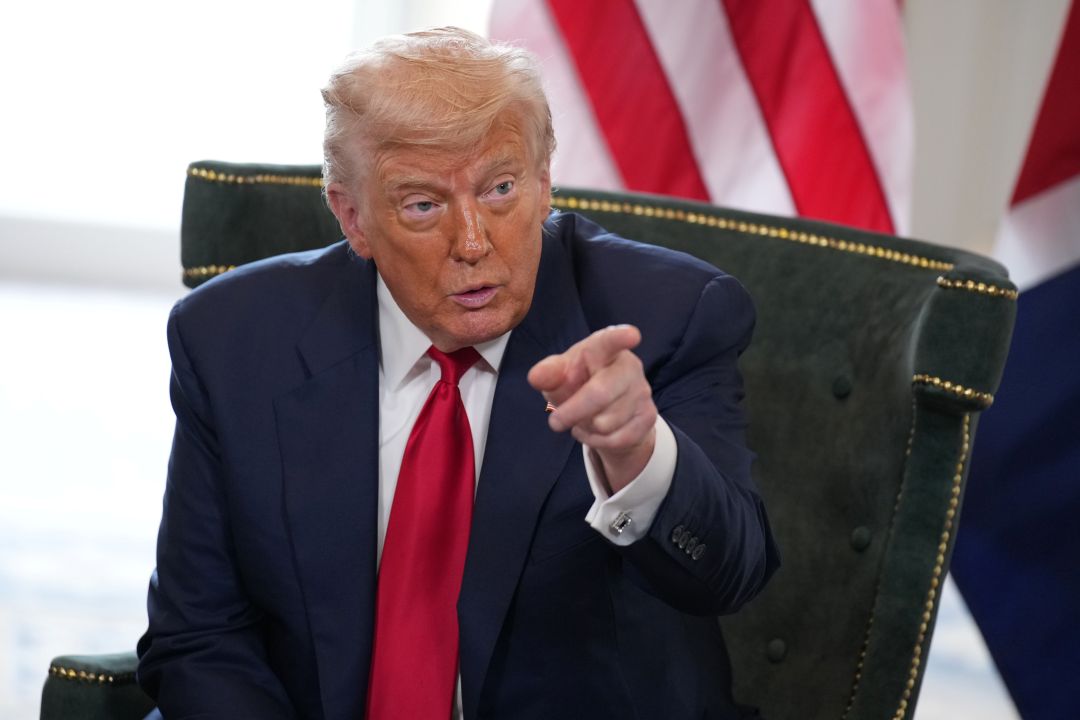
Should the government own the large businesses we interact with every day? In America, the answer to this question has traditionally been a resounding “no.” The Trump administration’s recent acquisition of a 10 percent stake in Intel—and its intention to acquire shares in other corporations—is a concerning sign that free enterprise is giving way to state-led industrial policy. That would harm America’s future prosperity.
The problem with this deal isn’t that it involves Intel. Though certainly large, the chip manufacturer is, on its own, too small for a government stake in it to affect the overall American economy. Rather, the problem lies in the precedent.
What happens when the government becomes a shareholder? In theory, acquiring shares doesn’t entail exerting direct control. In practice, though, the lines quickly blur.
Performance comparisons show that privately owned firms outpace state-owned ones. For instance, one World Bank analysis last year found that companies with at least a 10 percent government stake had on average 32 percent lower labor productivity than private firms and were more than 6 percent less profitable. Partially state-owned firms across the developed world give investors rates of return nearly 5 percentage points lower than those of median private firms in their sectors.
Advocates of the Intel takeover will dismiss this evidence because a 10 percent stake isn’t full state ownership and implies no control (for now). But firms with minority state ownership also underperformed their fully private peers, showing 19 percent less labor productivity and 3 percent lower profits and return on equity. The greater the share of a business the government owns, the worse that business performs relative to the private sector.
These results come as no surprise to economists. The profit motive and competition are powerful inducements to innovate, cut costs, and maximize profits. When the state gets involved, it brings politics with it—and politicians are in the business of maximizing votes, not profits.
Even when politicians don’t control the boards of state-owned firms, the mere temptation to raise capital from the government distracts a firm from profit-seeking goals, including efficiency. This is confirmed by another study revealing that fully and partly government-owned enterprises hire more workers than comparable private firms, at the cost of profits and growth.
The evidence against state ownership poses a question for the Trump administration: If it does not want to control what Intel does, why does it want to own 10 percent of its shares? Ownership gives the government voice and power to influence a firm’s board composition, strategic decisions, pricing—and political activities.
Secretary of Commerce Howard Lutnick has promised that the government will be only a passive shareholder and not try to influence business decisions, but even if he’s as good as his word, what guarantees that future presidents would follow suit? Furthermore, if government investment in private companies is a good thing, why stop at a 10 percent stake? Why not 49 percent—or 99 percent?
The evidence against state ownership of enterprises isn’t just scientific. Plenty of American examples demonstrate what can go wrong when the government takes over a business. Think of the U.S. Postal Service. Completely captured by the American Postal Workers Union, it saddled taxpayers with a $9.5 billion deficit last year, following a $6.5 billion deficit the year prior.
Advocates for government ownership of the Postal Service argue that it is a public service that all taxpayers should subsidize. That’s a weak argument in the age of email and FedEx, but it could just as easily be applied to Americans’ access to computer chips. Will taxpayers eventually be forced to bear 10 percent of Intel’s losses?
Deals like the Intel stock acquisition also threaten to breed cronyism and to derail technological progress. Why would Nvidia, the world’s largest company and one of Intel’s competitors, need to focus on creating a better product if it could just lobby the government for more capital? And why would Intel’s CEO do anything that might upset the White House if the president could threaten him with selling shares to tank the chipmaker’s stock price?
Supporters of the administration’s Intel move have argued that it’s necessary to exert control over industries that are vital to national security. That justification could just as easily apply to taking over farms, banks, and virtually any business of importance.
A key historic distinction between socialist and capitalist economies has been that socialism is about ownership and control, while capitalism seeks to allow the private sector to thrive independently. The government levies taxes to fund public services and the welfare state. If the government is concerned about the national security aspect of microchips, the last thing it should do is hinder the industry with state intervention or profiting from exports to China, as it does in the deal with Nvidia. Instead, the government should ban exports completely.
America is still a long way from being a socialist nation, but with the Intel deal, we have muddied the waters a little more.
Photo by Andrew Harnik/Getty Images
City Journal is a publication of the Manhattan Institute for Policy Research (MI), a leading free-market think tank. Are you interested in supporting the magazine? As a 501(c)(3) nonprofit, donations in support of MI and City Journal are fully tax-deductible as provided by law (EIN #13-2912529).


















